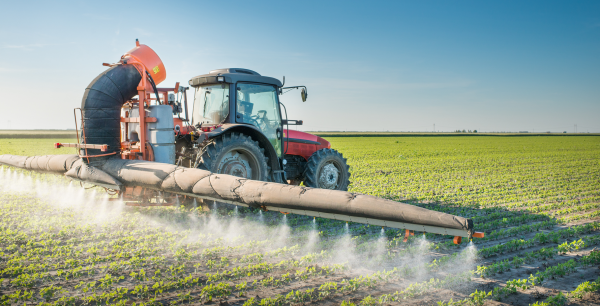Europa debe esperar la iniciativa ciudadana con respecto a glifosato
“Que no se renueve la licencia para el glifosato antes de haber considerada la iniciativa de los ciudadanos”
El Partido para los Animales exige que la Comisión Europea que no renueve la licencia Europea para el glifosato agrotóxico hasta que no se discute a plenas la recien oficialmente registrada ‘Prohibicion de Glisofato‘. La Eurodiputada Anja Hazekamp exige garantías de la Union Europea para que sea considerada seriamente la decisión a tomarse acerca de glifosato.

“La confianza en la UE para muchas personas ha bajado a cero. Bruselas no pueden permitirse ignorar las iniciativas de los ciudadanos, “dijo Anja la Eurodiputada Anja Hazekamp.
La licencia actual de la Union Europea para el glifosato vence en 2018 y coincide con el final del término de voto de la iniciativa ciudadana ‘Prohibición de glifosato’, que comienza oficialmente el 25 de enero. Los autores de la iniciativa tienen doce meses para por lo menos recolectar 1 millón de firmas. Si esto sucede, la Comisión Europea debe organizar una audiencia y responder con motivacion a la solicitud de prohibir el glifosato. “Sería irrespetuoso y antidemocrática si en el momento de la audiencia ya ha sido tomada la decisión acerca del glifosato,”, dice Hazekamp.
Según la investigación de la organizacion de la Salud Mundial, IARC, especializada en cáncer, el glifosato es probablemente carcinógeno. Además, hay indicios de que el glifosato tenga un efecto alterador para la hormonas. Sin embargo, la Union Europea decidió renovar en junio de 2016 la licencia de la UE con dieciocho meses. Inicialmente, la Union quería renovar la licencia con quince años, pero gracias a las protestas de diferentes países y Eurodiputados de la UE se ha podido evitar esto.
El Partido para los animales tanto en la Camara de los Diputados de Holanda como en el Parlamento Europeo se opuso a la subsistencia del glifosato en el mercado.
El glifosato es un agrotoxico que tiene como componente principal la sustancia Roundup. Roundup es utilizado por agricultores, gobiernos y particulares como una herbicida. Por el masivo uso muchos seres humanos y animales entran en contacto con el veneno. Una investigación de 2013 muestra que el 63 por ciento de todos los holandeses tenian trazas de glosofato en su orin.
“No extending of glyphosate license until citizens’ initiative is fully considered”
The Party for the Animals demands that the European Commission does not extend the European license for herbicide glyphosate until the recently officially registered European citizens’ initiative ‘Ban Glyphosate’ has been fully considered. MEP Anja Hazekamp wants the European Commission’s guarantee that the initiative will be taken into serious account with regard to their decision on the glyphosate license.

“Many citizens have lost all faith in the European Union. Brussels cannot afford to ignore citizens’ initiatives,” according to MEP Anja Hazekamp.
The current EU glyphosate license grant will expire at the start of 2018, coinciding with the end date of the citizens’ initiative ‘Ban Glyphosate’, which was officially launched on 25 January. The proposers of the initiative have 12 months to collect one million signatures. If they succeed, the European Commission will be forced to organise a hearing and give a fully reasoned response to the request to ban glyphosate. “It would be disrespectful and undemocratic if a decision on the glyphosate license is already reached at the time of the hearing,” says Hazekamp.
The section of the World Health Organisation that specialises in cancer research, IARC, has classified glyphosate as a probable carcinogen. In addition, there are indications that glyphosate is an endocrine disrupter. Nevertheless, in June 2016 the European Commission decided to extend the EU license for glyphosate by 18 months. Initially, the Commission even planned on extending it for 15 years, but this was avoided due to protests from several EU countries and MEPs.
The Party for the Animals has objected to continued placing on the market of glyphosate in both the Lower House and European Parliament.
Glyphosate is an agricultural toxin, its main ingredient Roundup. Roundup is used by many farmers, governments and individuals as a herbicide, and as a result of this mass use, a lot of people and animals come into contact with the toxin. A 2013 research showed that 63% of the Dutch population had traces of glyphosate in their urine.